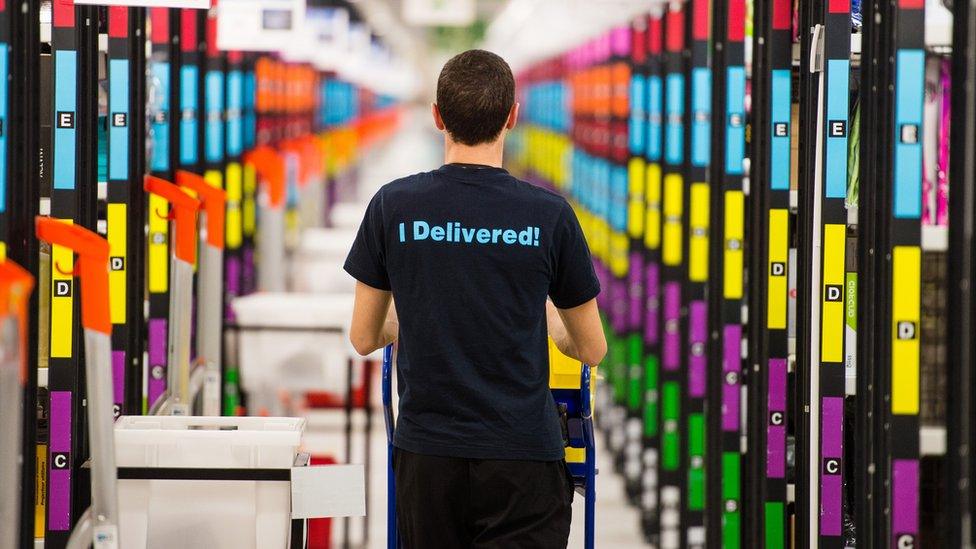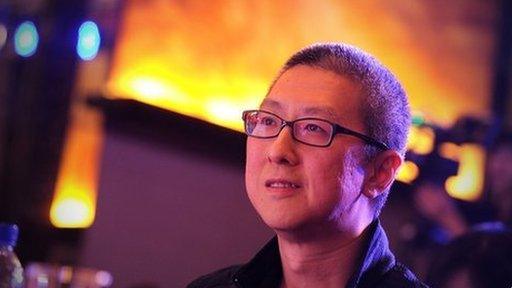The tech know-how that'll get you to the top
- Published
The idea of a "geek in the boardroom used to be unthinkable," says ceo coach and author Steve Tappin.
"You're crazy" was what people said when they found out that Nathan Blecharczyk was working on a website which would allow people around the world to rent their spare room or property to strangers.
Almost eight years later he doesn't look quite so crazy. Airbnb - the room letting website he helped to create - has been used by 60 million guests in 190 countries around the world, and has been valued at a staggering $25.5bn (£17.8bn; €23.4bn).
That's more than many of the established players in the hotel sector.
Yet in the early days Mr Blecharczyk said the idea was ridiculed by both investors and friends alike.
"So many people thought this was a crazy idea when they first heard it. They said certainly no one is going to allow strangers into their home, and so it was dismissed very quickly.
"A lot of these disruptive innovative ideas can easily be dismissed at first glance because they're so novel that you just think it's not possible."

Those with tech knowledge and skills are increasingly valued in the boardroom
It all began in 2007 when fellow co-founders Brian Chesky and Joe Gebbia couldn't afford the rent on their San Francisco apartment.
There was a design conference coming up in the city and all the hotels were full so they put some air mattresses in the loft and created a simple website to advertise the room for rent.
Instead of a bed and breakfast they called it an airbed and breakfast - the name and the idea was born.
The fact that a company which didn't even exist a decade ago can now be one of the big players in the accommodation industry is indicative of how technology is shaking up the status quo in established industries.
Tech know-how
Taxi hailing app Uber, commercial music-streaming service Spotify and the mighty Amazon have all wreaked havoc on their less technology-savvy rivals.
The changes mean that the qualities required in the boardroom are also shifting.
Traditionally the best route to the top has been from a management or financial background, but increasingly tech know-how is valued.
"Suddenly all of this technology that you used to have to go to your computer to use is going to be embedded in every aspect of your life and really driving the offline world.
"So I think as a CEO thinking about where the future is going to lie and knowing that it's going to be something completely different today is important," says Mr Blecharczyk.

Tech start-ups from Amazon to Uber have wreaked havoc on their old world rivals
It's a shift that CEO coach Steve Tappin, who works with many top chief executives around the world, says he's noticed.
"In the past, the idea of a geek in the boardoom was unthinkable. But technology is having a profound impact not just on products but the way businesses are run," he says.
Telstra chief executive Andrew Penn rose to the top via the traditional route; he was previously the Australian telecommunications firm's chief financial officer.
Nonetheless, he says that having a good grip on the technical side of the business is essential to his role.
"You've got to get your head around it.
"I don't know that means we necessarily all need to become software coders, but you do need to know enough as a CEO of a company to ask the right questions, to formulate a point of view about whether or not we had the right strategy, to get the right quality people around you that can make a difference from a technology standpoint."

Youku Tudou boss Victor Koo says the traditional reporting hierarchies within firms need to be shaken up
Of course, as the rise of new start-ups such as Airbnb indicate, tech is also a fast-moving world. Staying on top of it means not only being aware of the changes, but ensuring the company is agile enough to react to them.
Victor Koo, chief executive of video-sharing giant Youku Tudou, often dubbed China's YouTube, says since the firm launched just under a decade ago the demands of its audience have already shifted dramatically.
In 2006, the company's customers were accessing content almost entirely on their desktop computers, now more than 60% of users access the firm's content via their mobiles.
He says such a rapid pace of change means that the structure of the organisation and the traditional reporting hierarchies within it need to be shaken up, even if temporarily.
'Act now'
"When you draw an organisational chart - it's really things that we came up with back in the industrial change, right?" he says.
"And we're in the internet world where the world's changing very quickly, and the traditional kind of reporting lines and kind of pyramid structure needs to be adapted."
He says this could mean short-term changes, such as bringing together people for a particular project, before they return to their usual roles.
To help keep up with the rapid pace of change, the Chinese company has created "quick task teams" which work across different departments, can brainstorm ideas and come up with new ways of doing things.
His advice to fellow chief executives is "act now".
"In terms of mistakes it's often not acting quickly enough. I'm not saying you need to bet the farm. But if you spend too much time thinking about it the opportunity has already passed," he says.
This feature is based on interviews by CEO coach and author Steve Tappin for the BBC's CEO Guru series, produced by Neil Koenig.